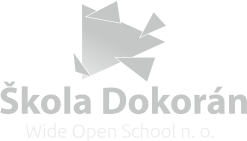GSA - Good start for all
Development of inclusive education methods for pre-school children from socially disadvantaged or culturally different environments
About the project
This project explored the possibilities of cooperation between informal education settings and preschools to support the inclusion of children from socially disadvantaged or culturally different environments. The informal education settings included foundations, NGOs, day-care centres and children's centres. During the course of an earlier project, it was found that there was a lack of cooperation between pre-schools and informal educators, particularly in helping parents and children to overcome the cultural, social and emotional barriers to entering and remaining in formal education.
The goal of the GSA project was to develop innovative recommendations, based on best practice in partner countries, on how to work with families and children from socio-economically disadvantaged or culturally different backgrounds, such as migrant and Roma families, to prepare children for entering and remaining in formal education. Accordingly, the project aimed to prevent early school leaving (ESL) by engaging with socially and economically disadvantaged children at an early stage. Together with our partner organisations, we identified the main activities, methods, programmes and strategies currently used to support vulnerable preschool children and their families. We also explored how these could be transferred to other countries. In order to facilitate an effective exchange of good practice, a platform has been set up to identify the best practices and compile a collection of innovative inclusive practices for use in informal and formal education settings across the EU. The identification and exchange of good practices will equip organisations and professionals with new methodologies and a wider toolbox to address issues related to socially disadvantaged children. Increased cooperation and coordination between stakeholders such as families, pre-schools and informal educators is essential to achieve higher quality ECEC and to identify and support vulnerable cases at an early stage.
The main activities of the project included the preparation of a report on national policies for inclusive ECEC in the partner countries, the description of inclusive policies, methods and practices applied in informal pre-school settings in the partner countries, the preparation of a training programme and the organisation of three joint staff trainings, and the development of a good practice guide on inclusive ECEC based also on the evaluations gathered during the pilot phase in non-formal settings (at least 3 per country). At the end of the project, a final conference was organised in Prague, which brought together 100 professionals, experts, researchers and actors working in the field of the project, also from EU Member States other than those involved in the partnership.

